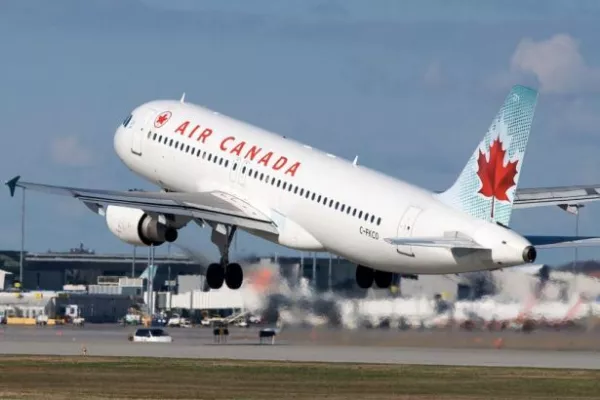Air Canada has reported a better-than-expected second quarter profit as the carrier flew more high-paying passengers, but executives warned the grounding of the Boeing 737 MAX would weigh during the third quarter.
Air Canada said it would remove the Boeing 737 MAX from its schedule until early January 2020, echoing a recent move by Southwest Airlines, as the grounding drags on longer than carriers had expected.
Canada's largest carrier, which has removed the MAX until January 8, had previously said that it was removing all 737 MAX aircraft from its schedule until at least September 2, 2019.
“It has been extremely frustrating to manage,” Chief financial officer Michael Rousseau said of the grounding.
North American airlines have faced higher costs and cancelled thousands of flights since the MAX was grounded worldwide in March following two crashes involving the model.
Air Canada CEO Calin Rovinescu told analysts the grounding would be "felt more acutely during the busy summer period."
Air Canada's third-quarter capacity is expected to decline about 2% from a year earlier, as the carrier struggles to bring in replacement aircraft. Air Canada originally expected a capacity increase of about 3%.
"While we certainly expect Q3 to be good it's not as good as it otherwise would have been," he said.
Air Canada, which has 24 grounded MAX aircraft, expected to be operating 36 MAX jets by the end of June, and 50 planes by mid-2020, Rousseau said.
The carrier would not hire additional pilots and cabin crews for its new MAX planes "until we have clarity," on when the planes will fly, he said.
Rousseau said it could take up to a year for Air Canada's MAX fleet to be fully operational after the ungrounding.
Statistics
Air Canada's passenger revenue per available seat mile, a key revenue measure for airlines, increased 3.6% during the quarter.
Air Canada's operating expenses rose 8%, and adjusted cost per available seat mile (CASM) - a measure of how much an airline spends to fly a passenger - climbed 5.9%.
The carrier's adjusted net income jumped 86% to C$240 million, or 88 Canadian cents per share, in the quarter ended that on June 30.
Analysts on average had estimated a profit of 76 Canadian cents per share, according to IBES data from Refinitiv. The stock was up 0.65% while the benchmark Canadian share index was flat.
News by Reuters, edited by Hospitality Ireland. Click subscribe to sign up for the Hospitality Ireland print edition.









